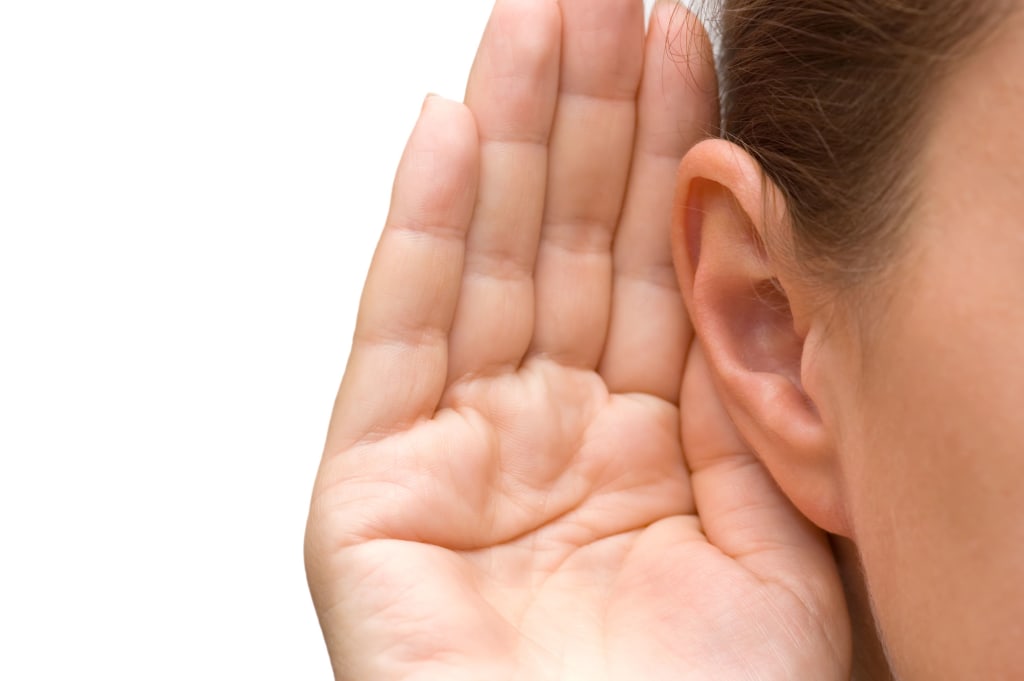The 10 Simple Attributes Of A Good Listener That Everyone Should Know
10 Attributes of Good Listener

The 10 Simple Attributes Of A Good Listener That Everyone Should Know
There’s so much to be gained from good listening skills, from building stronger relationships with your friends and loved ones to improving your overall level of professionalism in the workplace. And it’s true that good listening can be learned—you don’t need to be naturally gifted at it if you want to be a good listener, but you do need to practice and know what to look out for when it comes to identifying where you could improve your listening skills. Here are the ten simple attributes of a good listener that everyone should know.
1) Giving people your undivided attention
To be a good listener, you should give people your undivided attention. If you're constantly checking your phone, scrolling through social media or looking for ways to exit the conversation, then you're not truly listening to what the other person is saying. To make sure that you give people your attention and not try to multitask while they're talking, take notes on what they say. This will keep you focused and it'll also allow you to remember details about their lives when they might not be there in person with you.
2) Distractions don’t stand a chance with you
Distractions don’t stand a chance with you. When you really listen to someone, you are fully present in the conversation. You are not thinking about anything else or doing anything else at the same time. You hear and absorb every word that is being said to you.
3) Putting aside judgment
When people speak to you, it is important to put aside judgment and instead try to understand what they are saying. This means taking their words at face value and not making assumptions. When you do this, you will be able to get a clearer picture of what they are trying to say. It's also important for a listener to make eye contact with the speaker and show that they are engaged in the conversation. This can come in the form of small nods, murmurs of agreement or questions for clarification. If someone is telling you about something that has happened, try asking them if there was anything specific about their experience that bothered them or made them feel upset. This can help establish empathy on your part and allow you to offer an understanding ear if needed.
4) You’re curious
Interest is an essential element of listening. It might seem like a paradox that your curiosity and interest could have declined especially for those who are close and important to you. The problem is that we start thinking we already know everything about that person. We begin overhearing the new within the old information.
In a conversation you are the detective. You gather information and are keen to discover more about what your counterpart feels and what he or she is moved by. No matter how much you already know, there’s always more to discover.
5 Your senses have good reception
Trembling hands, raised eyebrows, tense shoulders – our bodies are also speaking, and they should be heard. Nonverbal communication is an important part of what is being said. All your senses should stay tuned to get the full message.
But, not only that: Listening is not a passive endeavor – it itself is active. The body language of a good listener answers with eye contact, an understanding nod, facing the person who is talking.
6) Keeping an open mind
Keeping an open mind is one of the most important attributes of being a good listener. When we are open minded, we listen to what others have to say and are willing to explore new ideas and perspectives. This can be difficult at times because it means not only accepting what is being said, but also acknowledging that our own opinions may not always be right. Keeping an open mind helps us see things from a different perspective and better understand why people act the way they do. Even if you don't agree with everything someone has to say, listening without judgment can help you learn something new about yourself or someone else.
7) Reflecting back what you've heard
Reflecting of what you head allow you to verify that you are hearing accurately. In order for this process to be effective, you must be able to perceive accurately what the other is experiencing and communicating.
8) Asking clarifying questions
It's a good idea to know your limits when it comes to listening. You don't want to feel like you're drowning in other people's problems and that the weight of their burdens is weighing you down. Make sure you can offer them some valuable advice or perspective on what they've shared with you, and then make sure they know that it sounds like they're doing just fine. They don't need your help right now, but thank them for opening up and let them know that if they ever need anything, they can always reach out to you in the future. This way, both of you will be better off because they'll have someone to talk to and you'll have more time to focus on yourself without feeling like a burden has been put on your shoulders.
9) You accept other opinions and can dial back your own
a. You accept other opinions and can dial back your own - You should not be the only one talking in conversations with others. It’s important to take turns listening and speaking, even if you disagree with what is being said. When there are differing opinions on a topic, it’s best to listen first before choosing a side.
b. You don’t interrupt people - Interrupting is rude and disrespectful to the person who was talking before you interrupted them. Plus, it shows that you aren't really interested in what they have to say because you're so eager to share your thoughts that you don't care about waiting for the other person to finish their sentence or thought. 3.
10) You know your limits
A good listener will be able to set aside their personal feelings and needs for the sake of the person they are listening to. They should also know when it is time to stop. A good listener should always try to put themselves in the shoes of the person they are speaking with, and try to see things from their perspective as well. They should be able to listen without interrupting, or trying to give advice at every turn. Being a good listener means being comfortable with silence, not feeling like you need to fill every moment with chatter. It also means not talking over them, or finishing their sentence for them.





Comments
John Hudson is not accepting comments at the moment
Want to show your support? Send them a one-off tip.